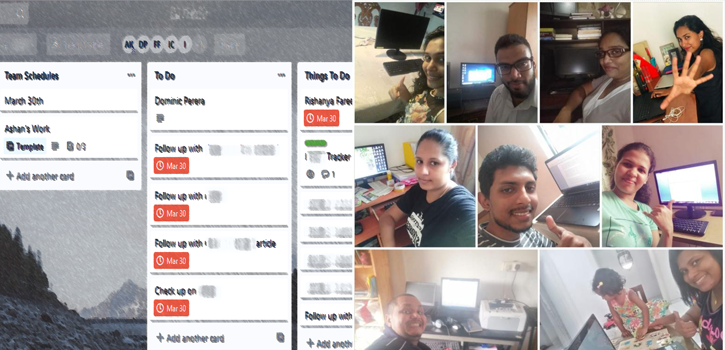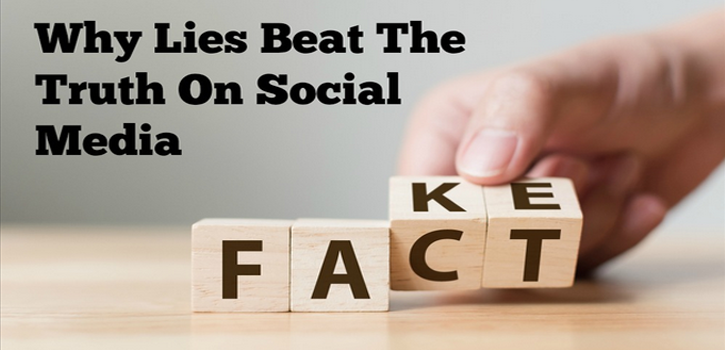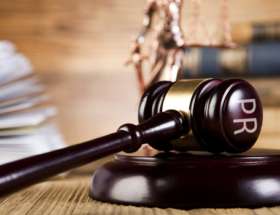
The time has come to walk the talk says Jamien Boulton
With millions of Sri Lankans relying on daily wages, the COVID-19 crisis brings with it a sense of despair and hopelessness. This is also the case with certain individuals who have lost their jobs or are experiencing a reduction in their income as a result of the pandemic.
Even though the government has promised to pay 4 million lower income earners a sum of 5000 rupees as relief, it will only be a temporary relief. Therefore, it is up to the Sri Lankan companies as responsible corporate citizens to provide relief to Sri Lankan citizens.
The method by which large companies respond to this crisis will define them for decades to come. With many companies talking about Corporate Social Responsibility (CSR) and Sustainability prior to this crisis, the time has now come for them to adhere to those principles.
Research indicates that employees believe that the company has values and a purpose only when they see the management taking decisions in order to adhere to those values even at the expense of short-term profitability. Therefore, taking action now can help improve employee morale and loyalty both immediately and in the future.
Many Sri Lankan corporate entities have already taken action in this regard.
HUAWEI Sri Lanka, donated 10,000 Surgical Masks, 200 sets of PPEs, 100 Protective Eye Glasses and 30 bottles (50L) of Hand Sanitizer to the Health Ministry and front-line workers through the Chinese Embassy in Sri Lanka.
Sri Lanka’s largest Conglomerate John Keells Holdings PLC (JKH) through John Keells Foundation and their distribution network, distributed 10,000 packs of essential goods free of charge to lower income families identified in the Western Province by the Government, they distributed 2500 packs of essential goods in Slave Island, Thimbirigasyaya, Mattakkuliya and Kolonnawa recently.
JKH also operates Cinnamon Hotels and Resorts in Sri Lanka and has offered its hotel, Trinco Blu in Trincomalee for use as a quarantine center on a temporary basis if needed.
They have also stated that they are willing to offer their other properties located around the country as well if needed.
Prior to the curfew being imposed in the country, Singer Sri Lanka, the country’s premier consumer durables retailer, together with the generous collaboration of Huawei Technologies, distributed Huawei Mobile tablets to foreign patients of the Infectious Diseases Hospital (IDH), Kotikawatta who were infected with the virus.
The Dettol brand, under their ‘Clean Hands – Clean Nation’ initiative, has made a contribution in excess of 3 million rupees by installing handwashing units at central locations and donating hygiene products to hospitals.
Omega Line Group Sri Lanka has donated 400,000 safety masks to frontline healthcare workers as aid to fight the COVID-19 disease.
Ride sharing applications such as PickMe and Uber Sri Lanka have partnered with the government and private retailers in order to deliver essential items to citizens during the curfew times.
Humane and Empathy
Apart from the above dedicated actions, there is more that companies can do. For example, if they need to reduce salary expenses, they can reduce the employees pay instead of terminating their employment.
A similar approach can also be taken with regards to local businesses, big companies can offer their services and supplies with a reduced profit margin or as a loan in order to help these smaller businesses stay afloat in these trying times. This will also help the local communities to have access to essential supplies in addition to the direct aid which they can offer to these local communities.
The managements of these big companies too face a tough situation, but it is the actions taken in times such as these that define the individual corporates and can make or break a company’s legacy.
No one expects these companies to take drastic steps to reduce the spread of the virus, but it is the responsibility of these companies as corporate citizens to act and help the country overcome this situation.









